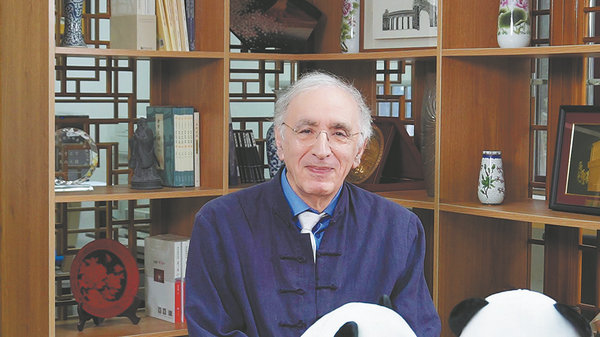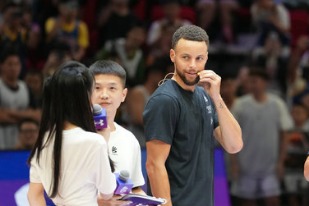Offering words of wisdom


In 2006, Bellassen was appointed the first Inspector General in the field of Chinese language teaching at the French Ministry of National Education, Youth and Sports, with overall responsibility for Chinese language education throughout France.
But Bellassen was quick to downplay on the reason behind his career achievements.
"I would probably not be in this position today if not for the establishment of China-France ties in 1964," he told China Daily at the International School of Tongji University on Dec 18.
"The exchange of students between the two countries was one of the most significant acts following the establishment of diplomatic ties. In fact, some of the 21 French exchange students who were part of the first exchange between the two sides were my teachers."
He was drawn to undertake the challenge of learning the language, alongside the unfamiliar but unique culture, particularly the Chinese characters that embody the essence of Chinese nationality.
Chinese characters are representative elements of Chinese culture, according to Bellassen. The language is totally different from Western language models.
Swiss linguist Ferdinand de Saussure (1857-1913), the founding figure of modern linguistics, divided character systems into two categories: ideographic and phonetic, the former being represented by Chinese characters. In most cases each Chinese character is a separate linguistic unit with meaning. After being combined into words, characters form one or more new meanings.
For example, the Chinese character dian means electricity and nao means brain. When the two characters are paired with each other, creating the word diannao, it means computer.
"For me, the meaning of Chinese characters is extraordinary," Bellassen adds.
The uniqueness of the Chinese language became the focus of his research for much of his career.
Looking ahead to 2024, which marks the 60th anniversary of the establishment of diplomatic relations between China and France, Bellassen is hoping that both countries will maintain efforts to drive engagement between their young people and academics.
He also stresses the need to enhance professional development to ensure that Chinese language teachers have the resources to motivate new generations of Sino-French cultural ambassadors.
Bellassen says that recent developments in this field have left him heartened.
On Sept 6, Chen Jie, China's vice-minister of education, met with Edouard Geffray, director-general for school education at the French Ministry of National Education, Youth and Sports, in Paris and signed an agreement regarding international Chinese classes offered in France.
According to the agreement, China and France will continue to cooperate on Chinese language programs in France, increase the number of Chinese language classes offered, train more local Chinese teachers, and develop new teaching materials.




































